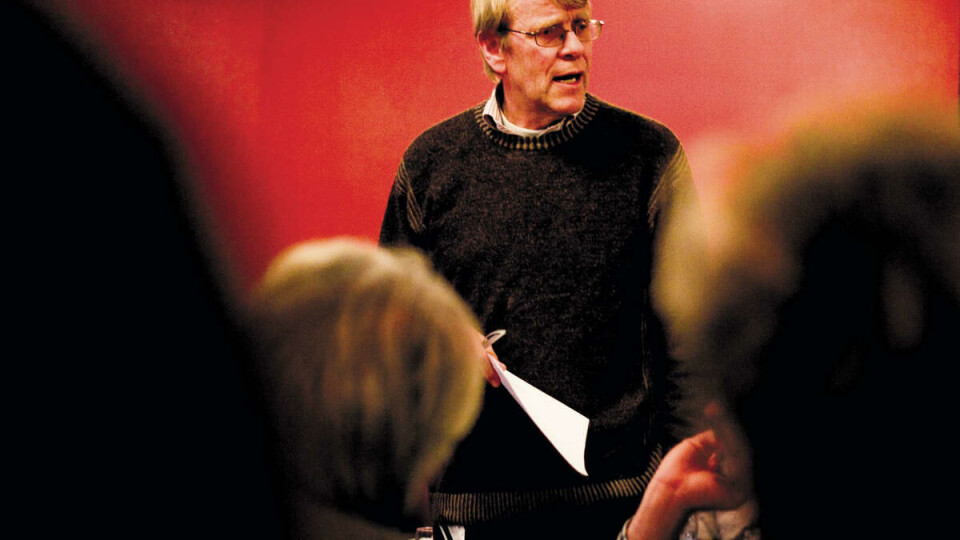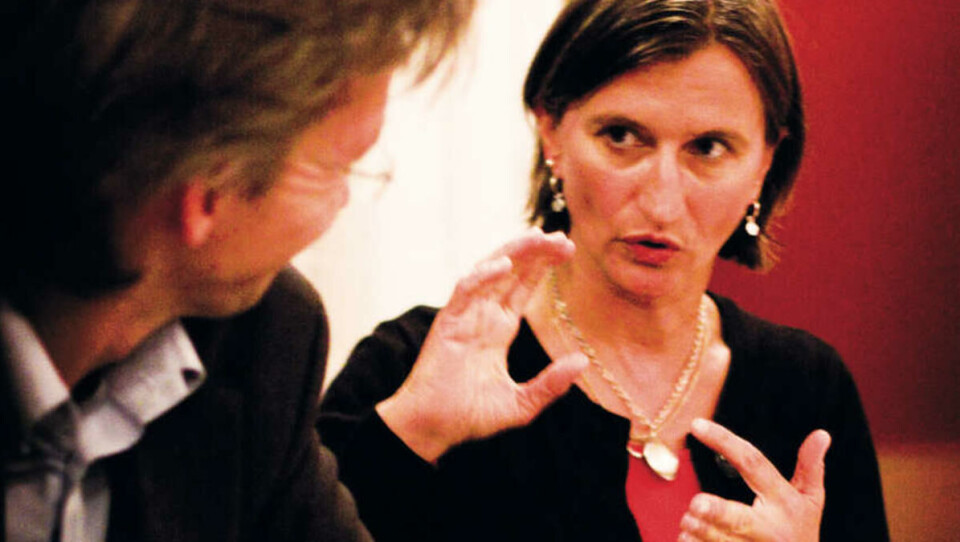
Raging against productivity demands and management by objectives
Five years after the Quality Reform was introduced, professors still gather in order to criticize it.

On Monday, serious men with lengthy educations gathered in «Klubben» at the University of Oslo Library and mocked the Quality Reform in Academic Forum, the association for scholars at the University of Oslo (UiO).
Professor of Criminal Law at the Faculty of Law Ståle Eskeland was among the critics who turned up for the debate on whether the university should be subject to management by objectives.
– After the Quality Reform cut the master’s degree from six years down to five years, the students that I teach must have criminal law, criminal procedure, civil procedure, fiscal law, sources of law, sociology of law or law and economics, during the course of two semesters! Of course students are going to ask: Is this part of the syllabus, do I need to know this? Eskeland says.
He thinks that students are terrified of learning anything outside of the actual syllabus.
– The current method of control is suffocating. The focus on effectivity has invaded the university. We experience demands in terms of productivity and an expectation that we should produce work without sufficient focus on the quality of the product, Eskeland says.
Critical to performance measurements
The Quality Reform was introduced at the University of Oslo in the autumn of 2003. The goals for the reform were to raise levels of education and research, increase the intensity of studies, and increase internationalization. Many voiced strong opinions against pressures on productivity and the system of «checking boxes» at the Academic Forum on Monday. Chairman of the Meeting Kristian Gundersen, who is professor at the Department of Molecular Biosciences, compares management by objectives to the command economy of the Soviet Union, and insists that it is neither modern nor orientated towards industry.
– The Quality Reform is mediocre, and could be modified with a few simple methods, Gundersen says.
In 2003-2004, the Office of the Auditor General conducted a survey into corporate governance at the universities. The survey stated among other things that «in planning, the biggest weakness is the absence of concrete short-term goals».
Eskeland reacts to the fact that productivity is measured in «characters with spaces».
– Results must be measured in the way in which they are measurable, he says.
An uphill argument
Managing Director of Abelia (Business Association of Norwegian knowledge- and technology based enterprises) and Member of the Board at UiO Paul Chaffey, was present at the debate. He believes that management by objectives at the universities covers the need that those elected by the people have for an overview in a steadily more complex world. Chaffey argues that operating within a framework leads to greater freedom.
– The discussion should be on whether UiO should have the same goals as a university college. This is not a discussion on management by objectives, this is about what kinds of goals one should have, Chaffey says.
Marianne Andreassen, leader of the Government Agency for Financial Management (SSØ) and member of the Stjernø Committee, supports goal-orientated management as a superior principle for universities.
– So long as the universities are being paid for with tax payer’s money, there must be some form of administration in which one can measure results, Andreassen states.
– A government that wastes resources will ruin itself.
Andreassen points out that universities were asked for suggestions for other types of administration when the Stjernø Committee scrutinized the sector a year ago.
– How would you like to be run? we asked, and few came up with any alternatives. We can sit here all evening and make fun of the side effects and imbalances of the Quality Reform, but what is the alternative?
Kristian Gundersen thought that «academic culture» was an alternative. It has worked before, he believed.
































